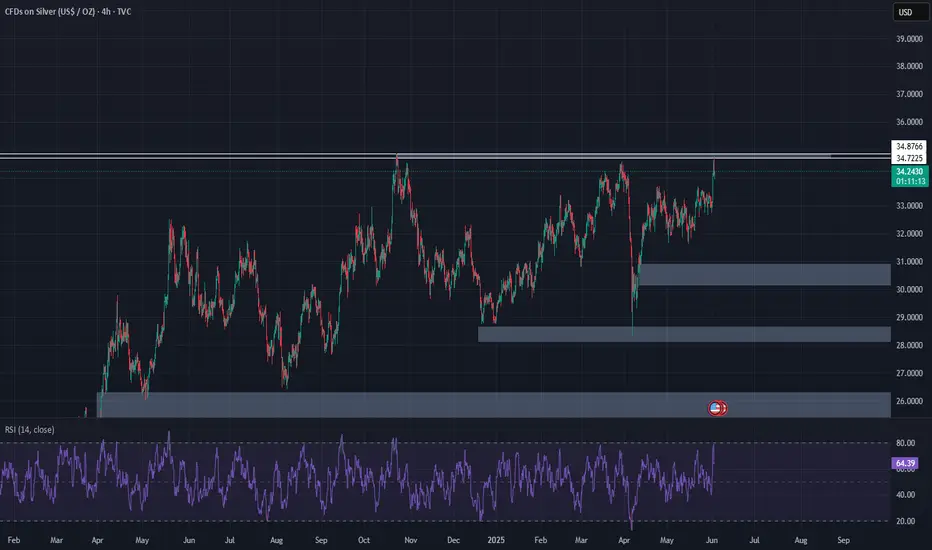📈 High Silver Prices = Hidden Inflation
Silver plays a key role in the modern economy. It’s a vital component in the electronics we use, the vehicles we drive, and even the medical products we depend on.
When silver prices rise, manufacturing costs increase. That leads to higher prices for consumers. Unlike gold, which sits in vaults, silver is used up. It goes into your phone, your TV, your car, your solar panel—then it's gone. Rising silver prices ripple through the global supply chain.
⚠️ The effects:
Smartphones and laptops become more expensive.
Solar panels cost more, slowing clean energy adoption.
Medical tools and antibacterial products go up in price.
EVs become harder to produce at scale.
Inflation quietly worsens for the average person.
❌ Silver Is NOT a Safe Haven
The idea that silver is a safe-haven asset is a dangerous myth.
Unlike gold, silver is tied closely to industrial demand. When economies slow down, silver usually underperforms. It’s volatile, reactive, and far from stable. While gold often rises in a crisis, silver behaves like a commodity—not a financial refuge.
Quick facts:
Silver is more volatile than gold.
It follows manufacturing trends, not market fear.
Its price is highly speculative and sentiment-driven.
📉 Why Silver Needs to Correct
Today’s silver prices are being driven more by emotion and narrative than fundamentals. Industrial demand is steady—not surging. Yet prices are inflated as if silver is scarce or irreplaceable. A correction in silver would:
Lower production costs for key industries
Ease global inflation pressure
Help consumers avoid price hikes on essential goods
Reduce over-speculation and volatility in the metals market
📋 Real-Life Items That Contain Silver
Understanding silver’s true role means looking at the real-world items that use it every day:
🔌 Electronics:
Smartphones (iPhones, Androids)
Laptops, tablets, TVs
Game consoles, remotes
Smartwatches, fitness trackers
🏠 Home:
Refrigerators, ovens, washers, dryers
LED light bulbs
Smart home devices (Alexa, Nest)
Air conditioners, thermostats
🚗 Vehicles:
Electric vehicles and battery systems
Infotainment systems
Defoggers, sensors, GPS units
⚡ Energy:
Solar panels (photovoltaic cells)
Electrical wiring, circuit breakers, fuses
🧬 Healthcare:
Wound dressings, surgical tools
Dental fillings, medical tubing
Antibacterial creams, hospital gear
👚 Clothing:
Antimicrobial athletic wear
Silver-infused socks, uniforms
🔄 Other:
Water purifiers
Air purifiers
Jewelry and coins
Musical instruments
Photography (traditional film)
🧠 Final Thoughts
Silver is not a safe haven—it’s a cost driver. Every dollar it rises adds pressure to the real economy. If you're serious about inflation, energy access, and technological progress, you should hope silver goes down, not up.
A lower silver price doesn’t hurt progress—it fuels it.
Disclaimer
The information and publications are not meant to be, and do not constitute, financial, investment, trading, or other types of advice or recommendations supplied or endorsed by TradingView. Read more in the Terms of Use.
Disclaimer
The information and publications are not meant to be, and do not constitute, financial, investment, trading, or other types of advice or recommendations supplied or endorsed by TradingView. Read more in the Terms of Use.
